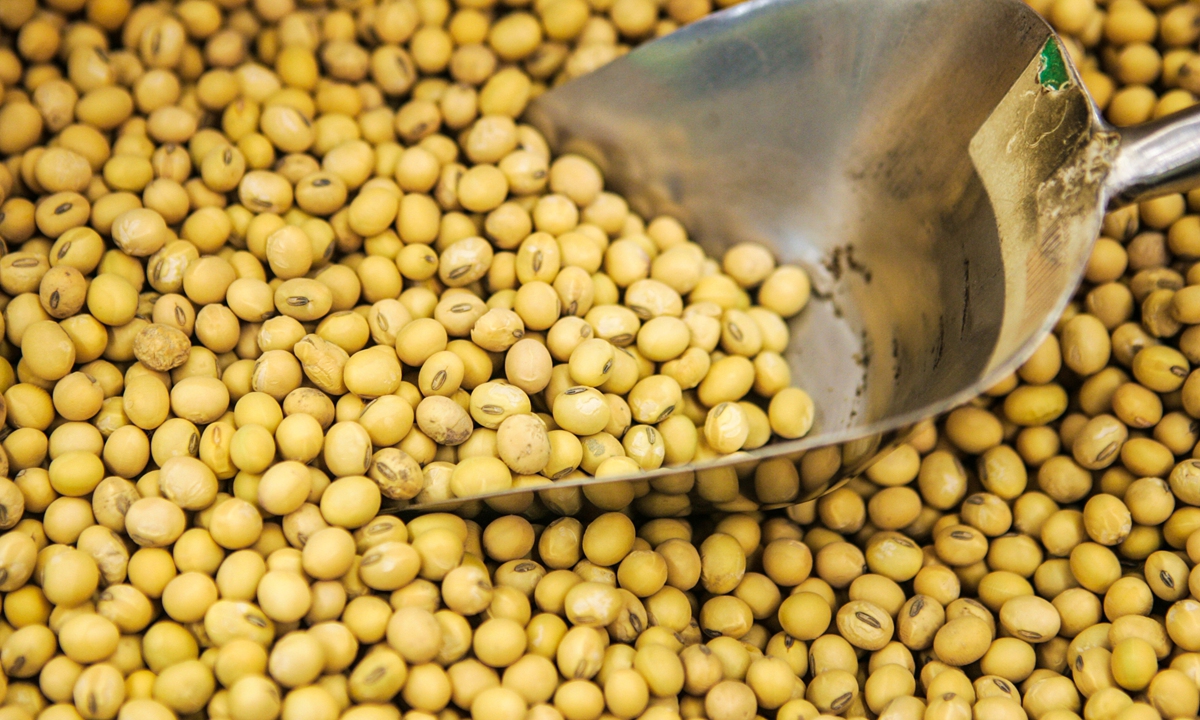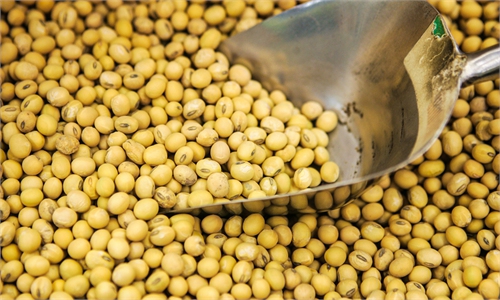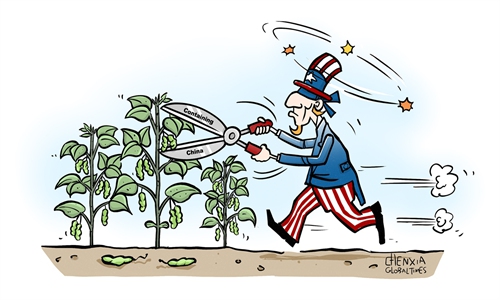
Soybean Photo: VCG
The latest advances in China-US agricultural cooperation are revitalizing and enhancing bilateral agricultural trade, bringing relief to the US agricultural sector. This development should be valued by both sides.China's Minister of Agriculture and Rural Affairs Tang Renjian jointly chaired the seventh meeting of the China-US Joint Committee on Cooperation in Agriculture with US Secretary of Agriculture Tom Vilsack in Washington on Thursday, according to a statement published on Friday by the Ministry of Agriculture and Rural Affairs.
As a symbol of the restart of China-US agricultural cooperation mechanism, the meeting was the first since 2015 of the Joint Committee on Cooperation in Agriculture, which was established in 2003 as an important channel for regular exchanges between the agriculture departments of the two countries.
The meeting was followed by an announcement from the US Department of Agriculture (USDA) that attracted widespread attention. The announcement states that private exporters in the US reported sales of 297,000 tons of soybeans for delivery to China.
It is no secret that due to trade friction between China and the US, among other factors, China's demand for American soybeans has decreased, with imports of soybeans from other major suppliers like Brazil showing steady growth.
In 2023, China imported 69.95 million tons of soybeans from Brazil, up 29 percent year-on-year, while soybean imports from the US fell by 13 percent to 24.17 million tons, according to the latest Chinese customs data. More importantly, the Chinese soybean purchase shows how American farmers are gradually losing their competitive advantages in the global agricultural market.
Against this backdrop, the new Chinese soybean order, following the restart of the agricultural cooperation mechanism, has undoubtedly brought relief to the American agricultural sector.
If anything, this development demonstrates the importance of restarting the China-US agricultural cooperation mechanism. It represents a positive change in agricultural cooperation between China and the US, and should be valued and carefully nurtured.
This is because the restart not only matters for soybean trade cooperation, but also lays the foundation for closer agricultural cooperation. It also indicates the possibility of China purchasing more American agricultural products, sending a positive signal to bilateral agricultural trade.
China will continue to pursue the principle of diversification when it comes to grain purchases, and market supply and demand, as well as prices, are important factors in deciding where to buy more agricultural products.
Still, the importance of the Chinese market is evident, as is the great potential of China-US agricultural cooperation. China has developed into the world's largest importer of agricultural products, while the US is the largest exporter. China stands as the largest market for US agricultural exports, taking up nearly one-fifth of the total, and also serves as the biggest buyer of American soybeans, corn, cotton and hay, among other crops.
"On average, every US farmer exported over $13,000 worth of agricultural products to China, and we expect more in the future," Chinese Ambassador to the US Xie Feng wrote in a message posted on X in October 2023.
Moreover, bilateral agricultural cooperation in terms of smart agriculture, food security and other factors, not only benefits people on both sides, but will also enable the two countries to jointly combat common challenges such as global food security and hunger with advanced agritech, ultimately benefiting humanity.
In light of the current difficulties and challenges facing China-US relations, China's significant soybean purchase is sufficient to demonstrate its sincerity in continuing deepening agricultural cooperation with the US.
It is hoped that the US can cherish China's goodwill, promote the improvement of bilateral relations through dialogue and cooperation, and implement the consensus reached by the presidents of both nations in San Francisco. Strengthening China-US agricultural trade cooperation is mutually beneficial, and it is our hope that this will contribute to the US reconsidering its unjustifiable tariff policy toward China. Ultimately, refraining from politicizing economic matters or excessively broadening the concept of security is essential for deepening agricultural cooperation.


